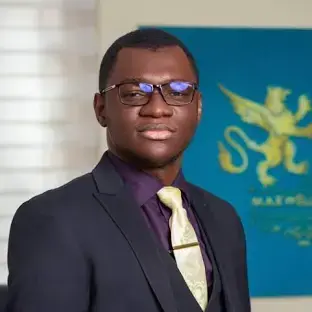In the bustling markets and quiet classrooms of Africa, a generation teems with potential, often hindered by limited opportunities. Consider the statistic: youth unemployment rates in Sub-Saharan Africa remain stubbornly high, a challenge that demands innovative and sustainable solutions. Margaret Ansei, CEO of the pan-African gender equality consultancy GEA, recently lauded the Mastercard Foundation for its unwavering commitment to addressing this critical issue, stating that its initiatives are not only transformative but also vital for the continent’s future. This article delves into the impactful work of the Mastercard Foundation in Africa, highlighting key projects and the perspectives of leaders like Ms. Ansei, who recognize the profound importance of **youth empowerment** in driving sustainable development.
The Transformative Impact of Mastercard Foundation’s Initiatives
Ms. Ansei’s description of the Foundation’s interventions as “transformative” underscores the significant strides being made in addressing youth-focused development. During the Mastercard Foundation Youth Futures Initiative launch, she commended the initiative and ISSER (the Institute of Statistical, Social and Economic Research) for their focused efforts. “The Youth Futures Initiative rightly centres on quality education, skills development, and dignified employment,” Ms. Ansei noted. “This is the future we must build—a future where no young person is left behind.”
This focus on youth-focused development is pivotal for achieving sustainable national progress, not only in Ghana but across Africa. The Youth Futures Initiative aligns seamlessly with broader development goals, aiming to equip young people with the tools and opportunities they need to thrive and contribute to their communities and economies.
Key Projects Driving Youth Empowerment: BizBox and HAPPY
Among the Mastercard Foundation’s impactful initiatives are two standout projects: Business in a Box (BizBox) and Harnessing Agricultural Productivity and Prosperity for the Youth (HAPPY). These projects are designed to address specific challenges and unlock the potential of young Africans in key sectors.
The BizBox Project aims to equip young people with the necessary tools to start and grow their own businesses. Through entrepreneurial training, startup kits, and mentorship programs, BizBox provides a comprehensive support system for aspiring entrepreneurs. Imagine a young woman in rural Ghana, armed with the skills and resources to launch a small tailoring business, providing employment for herself and others in her community – this is the kind of impact BizBox strives to achieve.
The HAPPY Project focuses on supporting youth participation in agribusiness, with a specific emphasis on post-production value chains. Targeting sectors like rice, soybean, tomato, and poultry, the HAPPY Project enhances youth involvement in agriculture and promotes economic opportunities in these vital industries. By providing training, access to markets, and financial support, the project aims to create a new generation of agricultural entrepreneurs.
“These projects are not just creating jobs,” Ms. Ansei stated. “They are cultivating a generation of resilient and empowered young entrepreneurs ready to drive Ghana’s economic transformation.” The long-term impact of these projects extends far beyond immediate job creation, shaping Ghana’s economic landscape for years to come.
The 24-Hour Economy Agenda and its Relevance to Youth
President John Mahama’s 24-Hour Economy Agenda has garnered significant attention as a potential catalyst for economic growth. Ms. Ansei has voiced strong support for the policy, emphasizing its role as an enabler of innovation and inclusion.
“The 24-hour economy policy is especially relevant for our youth,” Ms. Ansei noted. “An economy that never sleeps supports innovation and empowers enterprise.” By creating opportunities for young people to engage in various sectors around the clock, the 24-hour economy can unlock new avenues for economic contribution and personal growth. This policy aligns perfectly with the Mastercard Foundation’s broader goals of fostering **youth empowerment** and creating sustainable economic opportunities.
ISSER’s Perspective on the Mastercard Foundation Initiative
Prof. Peter Quartey of ISSER has also commended the Mastercard Foundation’s initiative, describing it as a timely intervention that aligns with Ghana’s economic development goals. He emphasized the critical role of such partnerships in addressing youth unemployment, highlighting how the initiative prepares the next generation for future opportunities. The collaboration between the Mastercard Foundation, ISSER, and other stakeholders is essential for achieving meaningful and lasting impact.
In conclusion, the Mastercard Foundation’s initiatives are making a transformative impact on **youth empowerment** across Africa. Through projects like BizBox and HAPPY, and with support for policies like the 24-Hour Economy Agenda, the Foundation is paving the way for a brighter future for young Africans. As Ms. Ansei urged, “Let us invest not only in projects, but in people, with full confidence that their ingenuity will multiply our efforts in ways we can only begin to imagine.”
Image Source: MYJOYONLINE




















